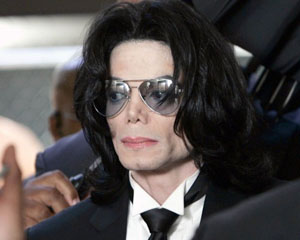
Studying Pop Stars

This seems to go against some of the defining qualities of pop music: that it is shaped by historical era and cultural context, that it is aimed primarily at the young, and that its value is dependent on the currency attached to it by its fans. Is it true that while most pop music is essentially 'of its time', and loses all meaning and value after a certain period has passed, certain pop stars are not? While music remains rooted in the era of its creation, it seems that some pop stars can transcend their context.
Why is this? While pop music changes, and is constantly evolving into a variety of hybrid forms, pop stars retain common characteristics. The songs change, but the singers remain the same. Whether your pop star gyrates their pelvis in 1951 or 2011, they embody the same set of values, namely:
- Youthfulness
- Rebellion
- Sexual Magnetism
- An anti-authoritarian attitude
- Originality
- Creativity/talent
- Aggression/anger
- A disregard for social values relating to drugs, sex and polite behaviour
- Conspicuous consumption, of sex, drugs and material goods
- Success against the odds
However, the longer a star remains successful on the world stage, the more difficult it is to continue to embody these values. Originality and creativity burn out. The rock'n'roll lifestyle erodes good looks. Young stars get old, complacent, become part of the establishment. It's extremely difficult to quit while you're ahead. But if you don't quit, eventually popular culture moves on, and quits you.
Prematurely dead artists make perfect pop stars. They don't become old and unattractive, nor do they lose the musical plot. They are easier to worship because they're not around to blot their copybook with embarrassing middle-aged lapses of taste: they don't appear in cabaret or on game shows, they don't wrong-foot their fans by going techno or releasing albums of skiffle cover versions. "Dead rock stars appeal to people because their death allows something nebulous to become a story with a beginning, a middle and an end," says Pat Gilbert, editor of the music magazine Mojo.
—Alexis Petridis in The Guardian (Dead Pop Stars, 1 November 2002)
That's why we're so familiar with all those members of the 27 Club. Pop stars have a definite sell-by date. Those who leave the party early exit with most of their dignity and appeal still intact.
Pop stars offer us semi-mythological role models; not particularly who we want to be, but who we think it might be cool to be, if reality wasn't such a restrictive and repressive place. That's why so many great popstars die young. They are too busy living out the dreams of the masses to work out who they really want to be. Fame insulates them from the realities of what they're doing to their bodies. They think the usual rules don't apply to them. And then they fall off the planet. Cue perpetual applause.
A Top 10 Of Dead Pop Heroes (in rough order of demise)
They all embody James Dean's maxim "Live fast, die young, have a beautiful corpse." Except Elvis, who died on the toilet. And Jim Morrison, who died in the bath. And.... oh, never mind.
(Pop) Star Theory
In Media Studies, the term "star" refers to a very specific concept. A star is a sign, and will signify a whole range of meaning. The presence of a star within a media text, whether it be a movie or a pop song, results in an audience reading a complex set of meanings into the text. On a very simple level, it means that the personal tragedies of the pop stars in the above list (eating disorders, drug addiction, mental breakdown) become part of the codes contained within the songs that they sing. It's all about attitude.
Dyer's Star Theory applied to Pop Stars
We read and understand songs differently depending on who is singing them, and whose personality or star persona is fused with the music and lyrics. A song forms part of a pop star's ongoing narrative (e.g. with a "break-up album", like Adele's 21, or Eminem's self-explanatory Relapse and Recovery).

Case Studies
Hindsight is 20/20, so the best way to understand the pop stardom phenomenon is to study a dead one. A good place to start is the All-Music Guide, a comprehensive listing of biographical information, discographies etc. Any pop star worth their salt will have spawned a whole series of fan sites, but please check the facts from unofficial sources.
To find out what kind of sales figures your artist has generated, start with the Best-Selling Albums of All Time. Based on US sales, it's an eclectic and surprising list, and is updated weekly. You might also like to look at the Best Selling Albums of All Time FAQ, which gives some useful additional information. The Guinness Book Of Records also gives details of worldwide best-sellers.
Billboard.com will give you the certifications (platinum, gold etc) of recent releases. Remember that a record has to sell 1,000,000 in the US to go platinum, but only 600,000 in the UK. The BPI site will give you certification awards for certain artists (their record company has to be a member of the British Phonographic Institution) - check the searchable "Certified Awards".